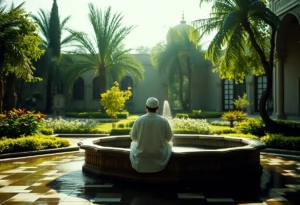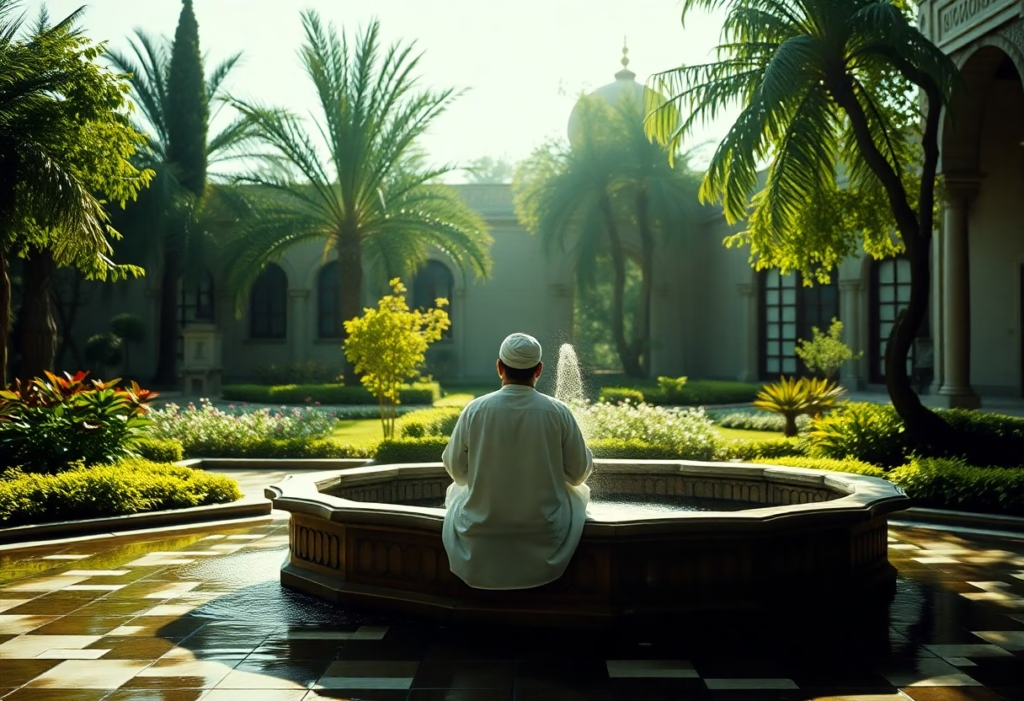With a profound understanding of the interplay between the physical and spiritual aspects of life, you will discover how Islamic teachings promote holistic wellness. By integrating spiritual health and physical wellbeing, you can create a balanced lifestyle that nourishes both your body and soul. This blog post will explore crucial Islamic principles, practices, and lifestyle choices that foster healing and overall health, helping you deepen your connection to both your faith and your wellness journey.
The Islamic Perspective on Physical Wellness
Physical wellness in Islam is viewed as an integral part of one’s faith and spirituality. Maintaining good health is not only a personal responsibility but also a means of fulfilling one’s duty to Allah. The body is considered a trust (amanah) from Allah, requiring you to nourish and care for it properly. Engaging in practices that promote physical health reflects your commitment to living a balanced life that aligns with Islamic values. By prioritizing your health, you enhance your ability to worship and contribute positively to your community.
The Role of Nutrition in Islamic Teachings
Islamic teachings place significant emphasis on wholesome nutrition. The Quran promotes the consumption of pure and beneficial foods, urging believers to choose what is best for their bodies. Following the Sunnah of the Prophet Muhammad, you are encouraged to eat in moderation and avoid excess, recognizing the impact of dietary choices on both physical and spiritual well-being. The act of eating becomes a mindful practice, fostering gratitude and awareness of the blessings in your life.
Physical Activity as a Form of Worship
Engaging in physical activity is deeply embedded in Islamic practice and can serve as a form of worship. Activities such as walking to the mosque, performing the daily prayers (Salah), and even sports can be elevated to acts of devotion. The Prophet Muhammad was known for his involvement in physical activities, emphasizing that maintaining strength and vitality is imperative for fulfilling one’s obligations. By making physical exercise a part of your routine, you can strengthen both your body and spirit, enhancing your overall wellness.
Physical activity as worship is rooted in the belief that taking care of your body allows you to engage more fully in spiritual practices. The Prophet Muhammad said, “The strong believer is better and more beloved to Allah than the weak believer, while there is good in both.” This perspective encourages you not only to stay active but to see your physical health as interconnected with your faith. Regular exercise provides you with the energy needed to fulfill daily responsibilities, participate in community service, and maintain a positive outlook on life, ultimately contributing to your spiritual growth and overall well-being.
Spiritual Health: Integrating Faith and Well-Being
Embracing spiritual health fosters a profound connection between your inner self and overall well-being. In Islam, nurturing this connection allows you to cultivate a sense of purpose and meaning in your life. Engaging in practices that strengthen your faith can significantly improve your mental and emotional state, leading to holistic healing and a balanced lifestyle. This journey often involves aligning your personal values with your religious beliefs, ultimately guiding you toward a path of fulfillment and serenity.
The Power of Prayer and Meditation
Prayer and meditation serve as vital tools for enhancing your spiritual health. Engaging in regular salah (prayer) not only connects you with your Creator but also provides an opportunity for reflection, gratitude, and mindfulness. Similarly, the practice of dhikr (remembrance of Allah) through meditation can help you achieve inner peace and tranquility, reducing stress and anxiety. These spiritual routines create a sanctuary in your daily life, promoting mental clarity and emotional resilience.
The Importance of Community and Social Support
Your well-being is significantly influenced by the relationships and connections you nurture within your community. Being part of a supportive Islamic community creates a sense of belonging, which is important for emotional stability and growth. Regular interactions with fellow believers not only enhance your spiritual journey but provide practical support through shared experiences and mentorship. This network can serve as a sanctuary during challenging times, reinforcing the notion that you are never alone in your journey towards healing.
In Islam, the concept of community is deeply ingrained, emphasizing the collective responsibility for each other’s well-being. Whether it’s gathering for Jumu’ah (Friday prayers), volunteering for charitable causes, or simply sharing meals, these activities deepen your social bonds and reinforce your faith. Research shows that engaged individuals in cohesive communities often report higher levels of happiness and lower incidences of stress-related illnesses. Therefore, by surrounding yourself with supportive relationships, you cultivate not only your spiritual health but also your overall resilience and well-being.
Mental Resilience: Balancing Mind and Soul
Mental resilience is vital in navigating the complexities of life, acting as a bridge between your mind and spirit. In Islamic teachings, you are encouraged to cultivate both mental agility and spiritual depth, allowing you to withstand challenges while remaining centered. Fostering resilience not only fortifies your psychological state but also aligns your soul with purpose, propelling you towards holistic wellness.
Understanding the Connection Between Mental and Spiritual Health
The interrelationship between mental and spiritual health is profound in Islam. A healthy mind nurtures a healthy soul, enabling you to connect deeply with your faith. Engaging in prayers, meditation, and reflection amplifies your mental clarity and emotional stability. This synergy enhances your ability to cope with life’s trials, creating a balanced state of being that reflects both mental fortitude and spiritual well-being.
Islamic Recommendations for Stress Management
Islam offers several methods for managing stress that enrich your mental and spiritual well-being. Practices such as regular prayer (Salah), reading the Quran, and engaging in dhikr (remembrance of God) help cultivate a calm mind. Additionally, establishing a routine of gratitude and community support enhances your resilience, allowing you to face life’s challenges with a serene and focused approach.
Daily prayers (Salah) serve not only as a spiritual connection but also as a form of mental reset. When you pause to pray five times a day, you allow yourself moments to reflect, regroup, and recharge emotionally. Engaging in acts of charity also reduces stress by providing a sense of community and purpose. Consider keeping a gratitude journal, documenting the blessings in your life as a way to shift your focus from stressors to positivity. Each of these practices aligns you with your faith, increasing your resilience against life’s pressures.
Healing Practices: Bridging Science and Spirituality
Islamic healing practices uniquely blend scientific insights with spiritual wisdom, allowing you to achieve holistic wellness. Techniques such as mindfulness in prayer (Salah) and the use of supplications (Dua) not only foster mental clarity but also promote emotional healing. You may find that herbal treatments and dietary recommendations align with modern nutritional science, enhancing both your bodily health and spiritual state. This integration nurtures wellness in all aspects of your life, reinforcing the belief that your body and soul are interconnected.
The Role of Natural Remedies in Islamic Medicine
Natural remedies play a significant role in Islamic medicine, emphasizing the healing power of God’s creations. You’ll discover that herbs like black seed (Nigella sativa) and honey have been revered for their health benefits, backed by Hadith and traditional usage. These remedies not only treat ailments but also enhance your overall health, affording you a more balanced lifestyle. Incorporating these natural solutions into your daily routine can help you cultivate both physical and spiritual resilience.
The Impact of Prophetic Traditions on Healing Approaches
Prophetic traditions, or Sunnah, greatly influence healing methods in Islam. The teachings of the Prophet Muhammad underscore the importance of holistic health, emphasizing both the physical and spiritual dimensions of wellness. You may find specific guidance on food, medicinal plants, and therapeutic practices that promote both mental clarity and physical vitality. These traditions inspire you to incorporate healthier choices and methods into your life that have stood the test of time.
Delving deeper into the impact of Prophetic traditions reveals a wealth of practices that prioritize your physical and spiritual health. For example, the Prophet’s emphasis on maintaining a balanced diet and using natural remedies acts as a guide for physical wellness. Furthermore, engaging in practices such as regular fasting and seeking Allah through prayer fosters your spiritual growth. As you implement these teachings into your healing journey, you foster a deeper sense of harmony and interconnectedness, allowing you to nurture your body and soul holistically.
Strengthening Relationships: The Interpersonal Dimension of Wellness
Building strong relationships enhances your emotional and spiritual well-being, supporting a holistic approach to wellness. In Islamic teachings, interpersonal connections are crucial components of a fulfilling life, reflecting the significance of empathy, compassion, and communication. Each interaction is an opportunity to deepen your connection with others, contributing to a sense of belonging and stability where love and support thrive.
The Importance of Family and Marriage in Islamic Life
Family and marriage hold immense weight in Islamic culture, deeply embedded in the faith’s principles. The family unit is viewed as a microcosm of society, where mutual respect, love, and responsibility flourish. As you nurture these bonds, you not only strengthen your own emotional health but also fulfill your Islamic duty to foster harmony and understanding within your household.
Charity and Its Impact on Personal Fulfillment
Charity, or *Zakat*, plays a transformative role in personal satisfaction and spiritual wellness. Engaging in acts of giving creates a sense of purpose, allowing you to contribute positively to the lives of others while reinforcing your connection with the community. Studies show that generosity can lead to improved mental health and happiness, proving that helping others ultimately helps you feel fulfilled.
When you practice charity, you engage in a cycle of positivity that uplifts both you and those you help. This act of giving not only meets the needs of the less fortunate but enriches your soul, fostering gratitude and reducing anxiety. Research indicates that charitable actions can significantly boost your mood, with a 2007 study revealing that participants who gave to charity experienced a surge in brain activity associated with happiness. The ripple effect of your benevolence extends beyond individual acts, fostering community cohesion and resilience, thereby enhancing your own sense of belonging and fulfillment in the process.
Conclusion
Drawing together the principles of Islamic views on wellness, you can enhance both your physical health and spiritual wellbeing. By integrating practices such as prayer, a balanced diet, and community support, you nurture not just your body but also your soul. Embracing these holistic approaches allows you to live a more fulfilling and harmonious life, reflecting the profound connection between your faith and overall wellness. Prioritize this journey, and you will find greater peace and vitality in your daily existence.


